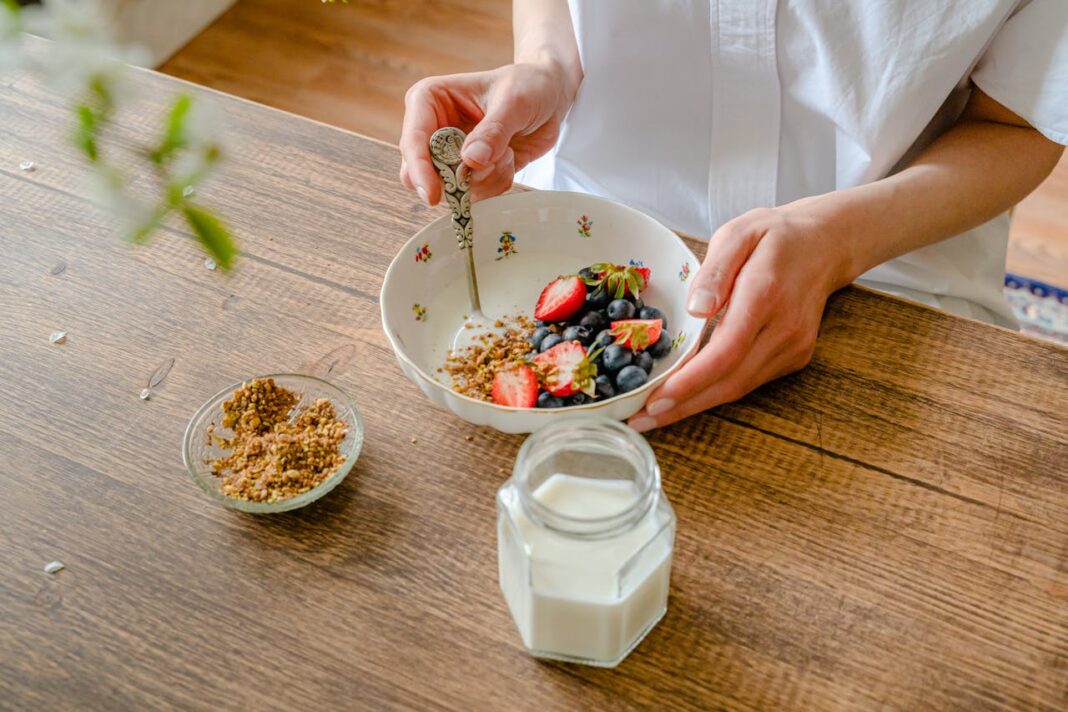Some days, you’re cooking quinoa and stretching before work. On other days, you’re eating crackers out of the box while replying to emails and wondering if brushing your hair counts as effort. And honestly? Both of those days are still part of a health routine—just shaped by what life actually looked like.
The idea that health has to follow the same routine every day is a recipe for feeling like you’re failing. Most people don’t have the same amount of time, focus, or brain space every week. So, instead of trying to keep up with some universal version of “balanced,” it makes sense to just build habits around whatever kind of week you’re having.
Meals That Fit the Day
Food is often the first thing to feel like a chore when life gets full. On busy days, you might eat a version of the same three meals just to avoid thinking too hard. That’s not slacking—it’s strategy. If you’ve got five go-to meals, you can rotate without effort. Congratulations, you’ve won on weekday eating.
Some people also like having one thing they do every day that keeps them consistent. That might be a daily supplement—something easy and unchanging. Brands like USANA Health Sciences are often used this way, not as meal replacements or solutions but just as a small, steady part of the routine.
Use What You’ve Got
It’s easy to get stuck thinking you need the right shoes, a better space, or new tools to “get back on track.” You don’t. If you’ve got a spot on the floor and ten minutes, you’ve got enough to do something. Health doesn’t need props.
There’s no need to skip the wait for everything to be perfect. You don’t need to prep a salad in a Pinterest kitchen. If all you’ve got is an instant lunch and a walk around the block, that’s still something. Most of the time, it’s not a lack of resources holding people back—it’s the idea that what they have isn’t enough.
Keep It Low-Key
Some health advice seems to think you’ve got a personal assistant and a 2-hour morning window. That’s great if you do, but for everyone else, keeping it low-key is key. One or two things that stay the same—maybe it’s the same breakfast or brushing your teeth while listening to music—can make your week feel less scattered.
You don’t have to “do everything.” In fact, doing less might actually help you keep going. Skip the full reset. Forget the 10-step anything. Just pick the habits that still feel reasonable when everything else is a bit much. If all you manage is drinking water and putting your phone down before bed, you’re still doing something. That counts.
Rest Instead of Forcing It
You know that feeling when you’re technically free, but your body says nope? That’s your sign. You don’t need to squeeze in a workout or prep anything impressive just because it was on your calendar. Sometimes resting now saves you from crashing later, and no, it doesn’t have to be productive rest.
Rest doesn’t need to be part of some “recovery strategy.” It can just be what you do when you’re tired. Lay down. Cancel the thing. Say no. It’s not falling behind. It’s what keeps you from running on fumes. You don’t have to fight through every moment.
Small Comforts Still Count
You don’t need to light a fancy candle or do a full wind-down routine every night. Sometimes, comfort looks like pulling on your comfiest jumper, eating leftovers straight from the container, or sitting somewhere no one’s talking to you for five minutes.
The point is that those low-effort, quiet comforts often show up when you need them most. They’re small signals that you’re looking after yourself, even if just a little. You’re allowed to value whatever gives your brain or body a bit of peace, no matter how basic it seems.
Slow When You Need To
Some weeks feel like walking through wet sand. You’re not unmotivated—you’re tired. You’re managing a lot. That’s not the moment to double your effort and “get back on track.” That’s the moment to slow down without overthinking it.
Doing less for a bit doesn’t need to come with guilt. It doesn’t need a label like “restorative season” or “reset phase.” It’s just recognising you’re stretched and dropping the stuff that doesn’t really matter right now.
Quiet Counts Too
Not everything needs to look productive. You’re still caring for your health if nobody knows about it. Drinking water and not talking to anyone for half an hour? Valid. Saying no to a social thing because you want to stay home and do nothing? Also valid.
Health isn’t always something to see. It’s often the stuff you skip, the choices that aren’t exciting, and the gaps you leave on purpose. If your week has no structure, no big “win,” and no new habits, but you still made it through intact—that counts, too.
Match Movement to Reality
There’s a time for planning workouts and a time for walking around the house in circles while your pasta cooks. If the second one fits your day better, it still counts. Maybe this week, all you can manage is standing while you take phone calls. Fine.
The trick isn’t pushing for a certain amount but noticing what fits now. If you’re chasing kids around, carrying boxes, walking to the shops—you’re moving.
Stop Measuring Against Others
There’s always someone out there doing more or at least posting like they are. It’s easy to fall into the trap of thinking you’re doing healthy living wrong just because it looks smaller, messier, or less structured than someone else’s version. But that comparison rarely helps.
Health isn’t a contest. You don’t owe anyone an explanation for why you’re eating what you’re eating or why your weekends look the way they do. If your routines make sense for the life you’re in, that’s what matters.
Let Joy Be the Goal
At times, the healthiest thing is just doing something that feels nice, with no other reason attached. Go outside because the air smells good. Dance around the living room. Eat your favourite breakfast even if it doesn’t tick any wellness boxes.
Joy doesn’t need to be part of a plan. It doesn’t need to earn its place. If something brings a smile, even briefly, that’s reason enough. You don’t need to call it self-care, wellness, or any other buzzword. You can just enjoy it and move on.
You don’t have to chase a perfect version of health that doesn’t match your life. Some days, you’ll do a little; some days, a lot; and most days, it’ll be something in between. That’s not inconsistency, but how real life works. So, eat the same thing three nights in a row. Say no when you’re not up for it. Do the walk, or don’t. It all counts.





